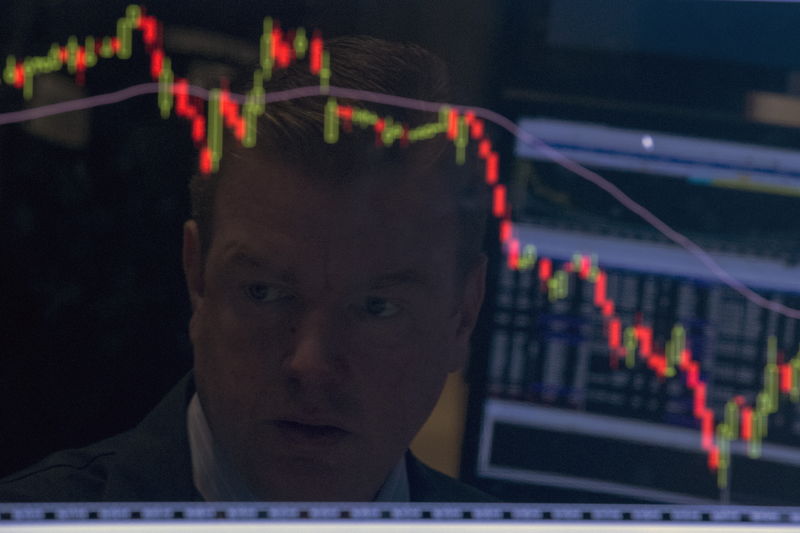By Geoffrey Smith
Investing.com -- The U.S. government, Federal Reserve and European Central Bank all roll out their latest support measures, but markets are set to open down in anticipation of the coming recession. Initial jobless claims in the U.S. may shed light on the spread of factory and service shutdowns, and the New York Stock Exchange is set to close its trading floor (but not its electronic operations). Here's what you need to know in financial markets on Thursday, March 19th.
1. Senate approves $500 billion stimulus; Fed to backstop money-market funds
The U.S. Senate passed without amendment the House of Representatives’ $500 billion bill of emergency measures to support the U.S. economy, the latest in a growing list of global actions to backstop an economy headed for recession due to the coronavirus pandemic.
The bill, dismissed by the administration and Senate Republicans last week as a ‘liberal wish list’ includes provisions for paid sick leave and free testing for the virus.
Attention is now turning to the administration’s next step, which reports suggest will include a $50 billion support package for the airlines industry and a further $500 billion in direct payments to households to make good expected income shortfalls.
Additionally, the Federal Reserve announced a new lending facility aimed at easing stresses in the money-market fund sector, which has been rocked by a surge in redemptions.
2. ECB bazooka stems growing euro zone break up risk
The European Central Bank announced its biggest ever anti-crisis package, aiming to nip in the bud growing doubts about its willingness to backstop the currency union’s weaker member states.
The ECB said it would buy up to another 750 billion euros ($820 billion) in government and private-sector bonds and lift its previous self-imposed limits that stopped it concentrating its firepower on countries facing the biggest stress.
Greek and Italian bond spreads, which had surged since President Christine Lagarde’s communications gaffe at last week’s press conference, narrowed sharply, but the boost to market confidence was less evident in stocks, with only Italy and Spain among the bigger markets posting gains.
The Australian and Swiss central banks also announced further easing measures.
3. Stocks set to open lower; dollar drives higher
U.S. stocks are set to open lower again on Thursday as the widening shutdown of the U.S. and European economies focuses minds on the depths of the coming recession.
By 6:50 AM ET (1050 GMT), the Dow Jones 30 futures contract was down 343 points, or 1.7%, while the S&P 500 futures contract was down 1.7% and the Nasdaq 100 contract was down 0.8%.
European stocks were mixed, while Chinese and other Asian markets had ended lower overnight.
The global dollar squeeze continued, driving the dollar index to its highest since January 2017, rising 1% against the Swiss franc after the Swiss National Bank signalled it would step up interventions in the currency market to stop the franc appreciating. The dollar also posted extraordinary gains against emerging currencies from Indonesia to Mexico. The dollar also hit a five-month high against the Chinese yuan of 7.1496. The Norwegian krone suffered its worst daily drop in half a century, amid collapsing oil prices.
4. Jobless claims to grab attention
While most economic indicators are passing by unnoticed, markets will be paying attention to the release of U.S. initial jobless claims at 8:30 AM ET (1230 GMT).
Given their timeliness, the numbers will be the first hard data to show the actual impact of slowing activity on the job market.
Elsewhere, German business confidence, as measured by the Ifo index, registered its sharpest monthly decline ever in an early unscheduled release.
5. Liquidity hit by stressed marketplaces
Concerns about liquidity in global markets continue to grow as exchanges restrict operations and bank traders disperse from their cavernous trading rooms to work from home.
The New York Stock Exhchange has decided to close its trading floor after two employees tested positive, albeit electronic trading, which accounts for the vast bulk of turnover, will continue as normal.
In London, ever-tighter lockdown measures are expected to hit liquidity in European markets, and the global foreign exchange market.
Short-selling bans in various markets such as France, Italy and Span remain in place, further crimping liquidity in European stocks.
